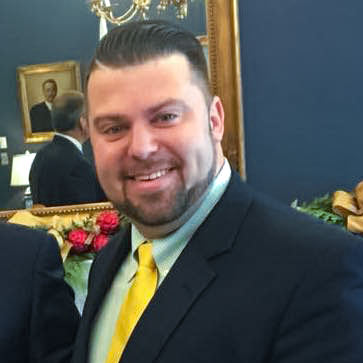By PAULA TRACY, InDepthNH.org
CONCORD – Six feet. That has been the standard for distance people should stay away from others during the COVID-19 pandemic in New Hampshire.
Whether something closer than six feet – like three feet – will be allowed by Gov. Chris Sununu in new universal guidelines during COVID-19 may be decided next week by Sununu and state epidemiologist Dr. Benjamin Chan.
Members of the Governor’s Economic Reopening Task Force were told Friday that that would be up to the governor and Chan to decide once they receive a single, universal set of best COVID-19 practice guidelines for New Hampshire business operations.
Called “Universal Best Practices for New Hampshire Employers and Employees,” the draft said effective May 7 it would replace all existing “Stay at Home 2.0” business operations guidance in place since March, 2020.
“These Universal Best Practices are recommendations for all businesses, organizations, and individual business operators to consider for the operation of their business.”
That document was approved and recommended by the task force dropping mandatory requirements, but still allowing businesses to decide what is best for them. The state no longer has a statewide mask mandate but masks are still recommended in public.
The guidelines are essentially the floor, aimed to maintain consumer confidence and the ceiling may be dictated by the individual business.
The guidelines, which will be just recommendations after May 7, will include CDC guidelines for care and cleaning and other specifics to help reduce the spread of the highly contagious virus that has killed almost 1,300 residents so far.
The measure will consolidate best practices guidance for 42 separate aspects of the economy – from daycare centers to hairdressers to performing arts.
A copy of the draft is here. https://www.nheconomy.com/getmedia/b0986d1e-d4c0-47fa-9cec-9bab7563b38d/Universal-Best-Practices-Proposal.pdf
The separate documents were established over the past year to protect the public during a time when the state had no vaccines, medical supply issues, and was worried about the health-care system being overrun.
They were developed by the task force with industry-specific input in each case and then finalized by Sununu and Chan.
The new document “simplifies things and makes recommendations rather than ‘shalls’ and ‘musts,’” said Taylor Caswell, commissioner of the state Department of Business and Economic Affairs.
The guidelines could be in place in two weeks.
Addendum, however, for amateur youth sports and gyms, day and overnight camps, and performing arts were separately approved for the governor’s consideration. A copy of those recommended guidelines is included in the agenda here https://www.nheconomy.com/reopeningtaskforce.
Sununu said he expected to address the matter next week and has said his goal is for existing guidance documents to go away by May 7. He has also eliminated the statewide mask mandate while recommending that people continue to wear masks in public.
While the universal guidelines change may seem like “a big change,” task force chair D.J. Bettencourt said in his review of all the documents through the course of the week, he found they are not as dramatic as they might appear and a lot of redundancy is eliminated.
Already legal restrictions and insurance guidelines dictate terms for businesses that are more protective and prescriptive than what the state has for best practice recommendations, said Bettencourt.
The changes also reflect a better understanding of the virus than we had last year.
“Because we understand more about the virus, like sunshine and fresh air…this allows for less prescriptive guidance now for golf, beaches, and state parks,” he said.
Travel guidance, for example, requiring quarantines has been eliminated.
Bettencourt noted the success of vaccines to protect many, particularly the most vulnerable elderly, and changed practices have helped ease restrictions, Bettencourt said.
The universal guidelines still suggest a good communication plan to the public on what is expected, sanitization and timing for regular cleaning, and training for employees related to protection from COVID-19.
The nine exceptions were chosen because of a strong industry desire to maintain some of their specific provisions as best practices, Bettencourt said, adding Sununu was only willing to accept a few.
All nine were recently revisited by the task force and are already on the governor’s desk.
Eventually, all of these recommendations will go away, Bettencourt said, as the pandemic goes away. He said he understood some have different opinions about recommended distances, while others said six feet has been the standard rather than three feet between individuals.
“Please remember that any business has the ability to continue any safety practices they feel is best for them, including using the old documents,” he added.





